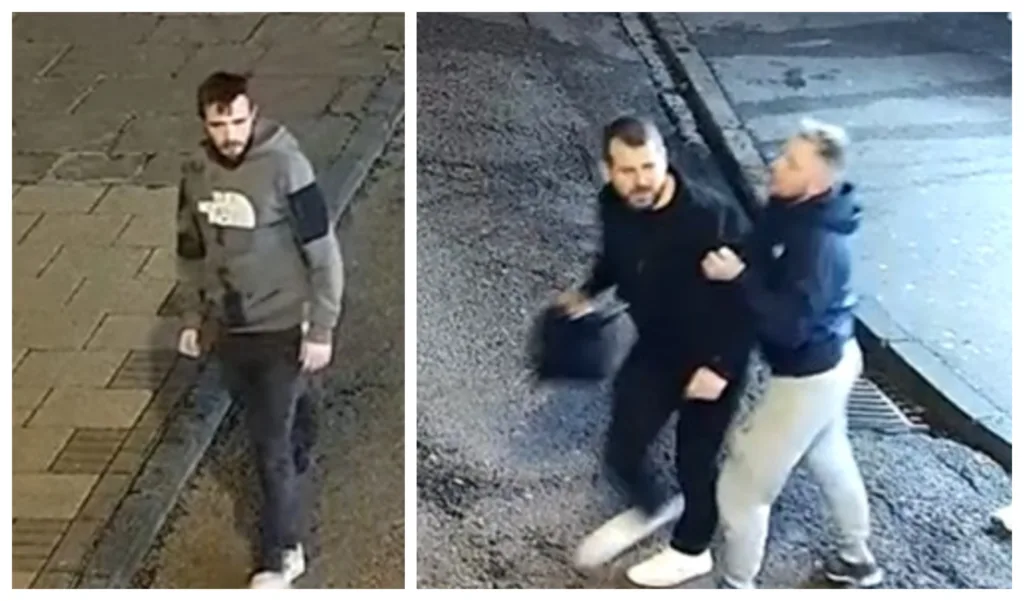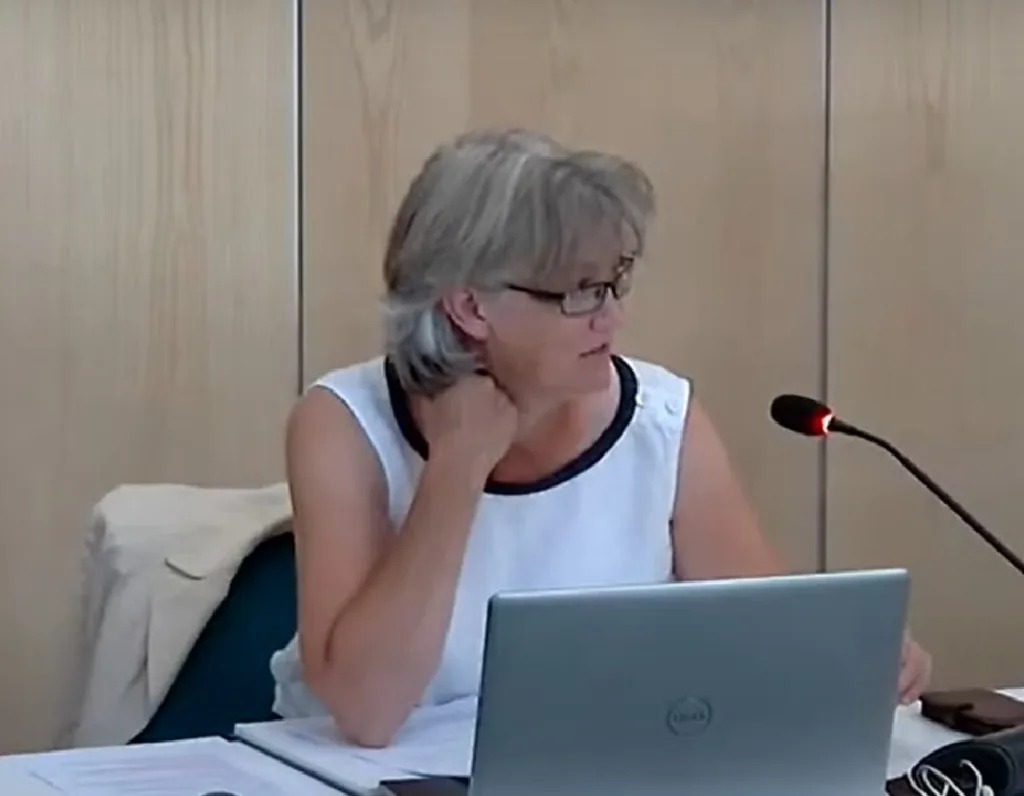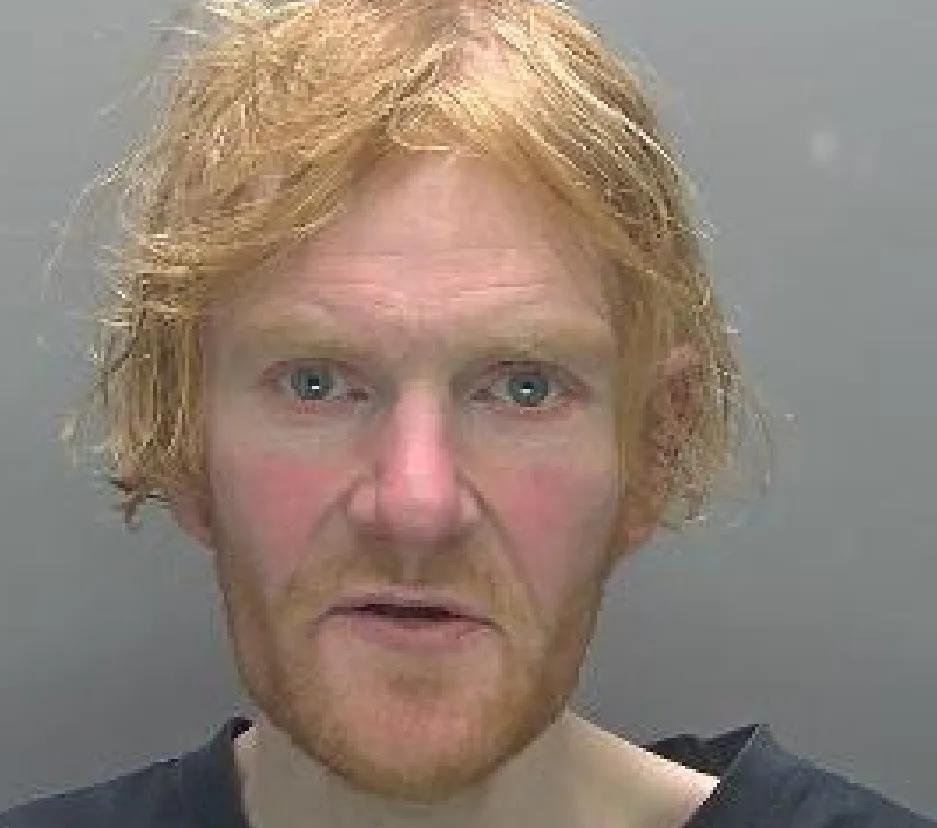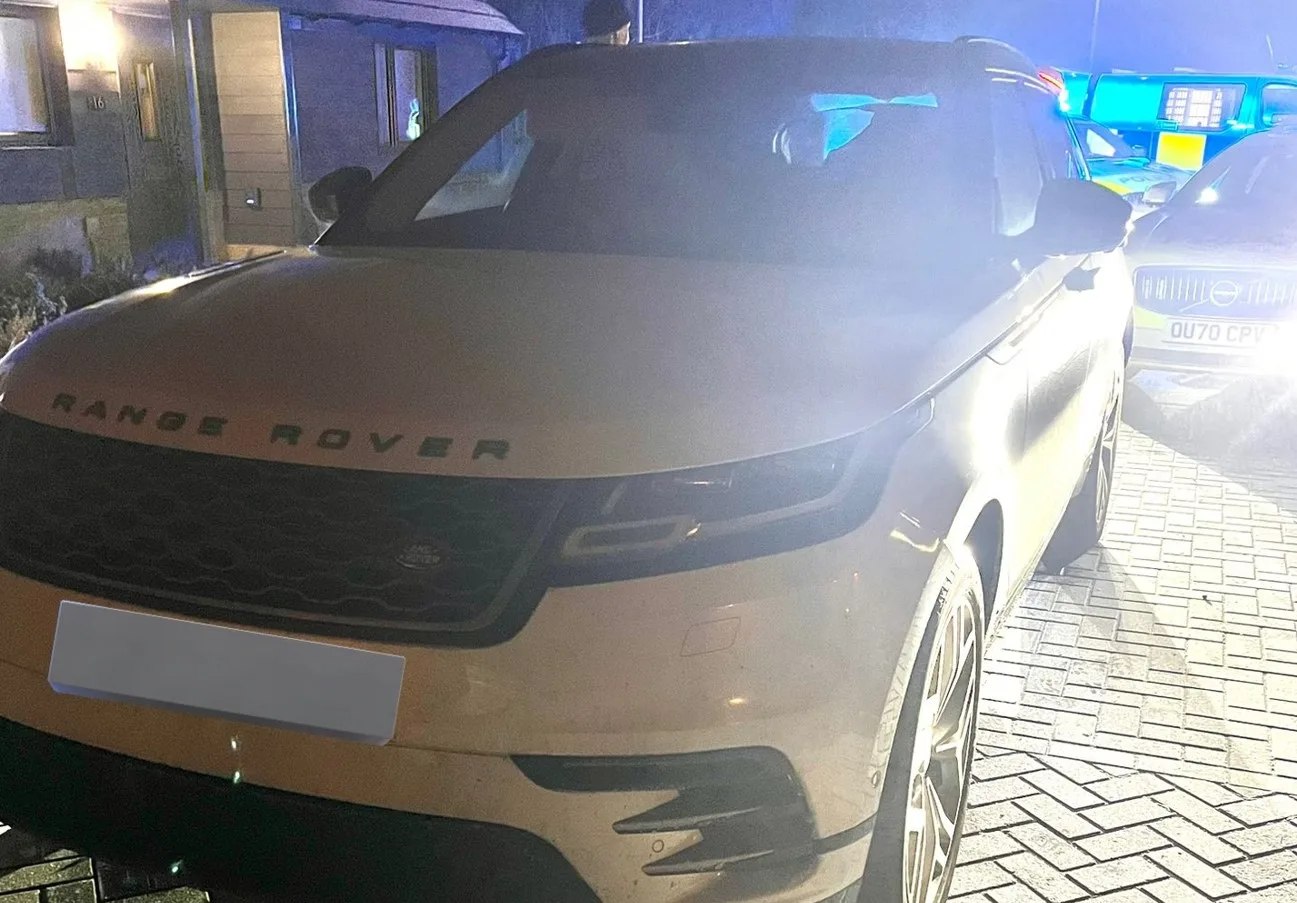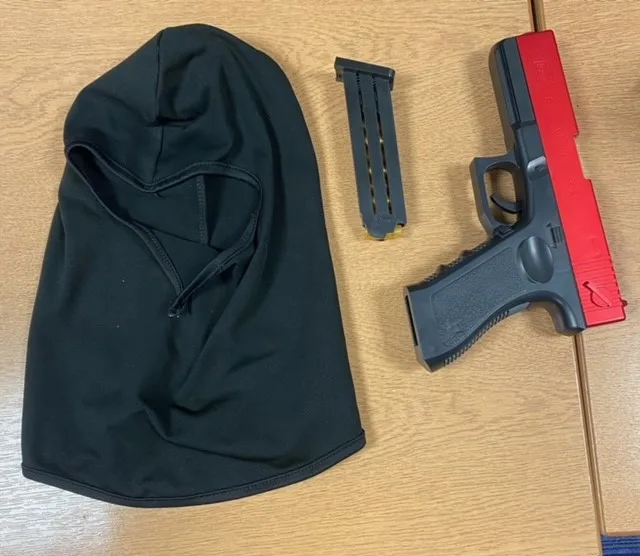“I get paid cash £8 an hour and get paid cash each month,” said the 20-year-old Indian who swapped studying for a BSc (Hons) course in computing, at Bournemouth University, for a job in a village shop and filling station. “Do you pay income tax or have a National Insurance number?,” he was asked.
“No, I don’t tell anyone,” he replied.
And in response to how the course was going – into which he enrolled in September 2021 – he replied: “I stopped going at least 6 months ago”.
And with this that his fate – and that of the shop that employed him – was sealed.
The questioning by Home Office immigration officers was revealed to a licensing subcommittee of East Cambridgeshire District Council.
And despite an impassioned plea by the landlord of the Londis store and filling station in Fordham near Newmarket, councillors opted to revoke their premises licence to sell alcohol.
The hearing heard that a referral was made to the Home Office Civil Penalty Compliance Team to consider pursuing a penalty in relation to the illegal working and a £20,000 penalty could have been imposed
The right approach
That was avoided and instead a review of the premises licence was considered the right approach.
A report to councillors said: “The application details that the licence holder could have avoided the review if it had conducted the proper right to work checks and adhered to the restrictions placed on the employee’s visa.”
Immigration officers revealed that they saw the Indian national when they visited Londis at the Fordham Service Station at 31 Carter Street, Fordham, on May 25.
The visit came after “intelligence was received stating that the business was employing persons who do not have immigration status and are paid cash-in-hand.
“Two members of staff were found on the premises, one of whom was an Indian national. He was arrested and detained by immigration officers.”
At the time he was “observed standing behind the service counter in the store, wearing a ‘GULF’ branded fleece.

“On initial questioning, he stated that he’d arrived in the UK in September 2021 on a student visa. Home Office records show that was issued a student visa valid from 20 August 2021 to 27 October 2025 to study a BSc (Hons) course in computing, at Bournemouth University.
“The visa restricted to a maximum of 20 hours work per week during his study terms.
“Upon further questioning, he stated that he’d worked at the premises for 18 months working 25-30 hours per week as a cashier, serving customers and authorising fuel payments.
“He further stated that he was paid £8 per hour in cash, each month and that he received his payments from “the licence holder.
Not studied since first day of term
“In questioning about his student visa, he admitted that he’d not studied since the first day of term and had been working more than his permitted hours for the past 18 months.”
The immigration report added: “In addition to the admission, officers gathered evidence from timesheets that showed was working over 20 hours each week.
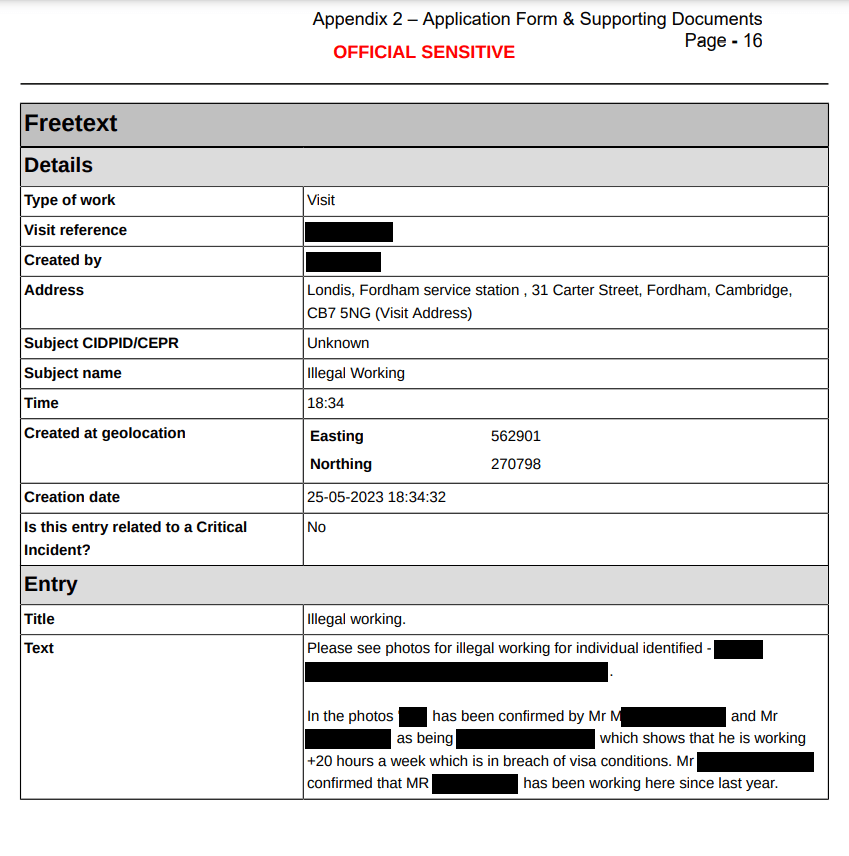
“He was clearly not studying in line with his visa and in addition he was working in excess of his permitted hours for some considerable time.
“He was in breach of his visa and was arrested and detained by immigration officers.”
Their report concluded the owner had not kept proper records.
“If the management did take copies of passport, then they clearly decided not to be concerned about the limitations on his permitted working hours,” says their report.
“Alternatively, they chose not to concern themselves at all, knowing that in doing so they could pay him below minimum wage, ‘off-the-books’.
“There must be a significant concern over the attention to the restrictions of the licensing act and how they are being treated by this business – are staff being properly trained?
What else is lacking?
“If they don’t conduct checks on employee’s right to work, what else are they lacking in?
“In this case, it seems reasonable to conclude that ‘the manager is ‘and that he is, the designated premises supervisor (Sakthivel Vijithran) listed on the licence.
“It is an offence to work when a person is disqualified to do so, and such an offence can only be committed with the neglect or co-operation of a premises licence holder or its agents.
“It is also an offence to employ an illegal worker where there is reason to believe this is the case.”
The report says the law states that certain activity should be treated particularly seriously, and this includes employing someone who is disqualified from that work by reason of their immigration status in the UK.
It adds that “it is expected that revocation of the licence – even in the first instance – should be seriously considered.
“Immigration enforcement submits that for commercial reasons those engaged in the management of the premises employed an illegal worker and a warning or other activity falling short of a review is inappropriate.
“The use of illegal labour provides an unfair competitive edge and deprives the UK economy of tax revenue.
“Illegal workers are often paid below the minimum wage (itself an offence) and National Insurance payments are not paid.
“A firm response to this behaviour is required to ensure that the licence holder and/or its agents are not allowed to repeat the exercise and in particular, in the interests of the wider community to support responsible businesses and the jobs of both UK citizens and lawful migrants.
“It is also required to act as a deterrent to others who would otherwise seek to seek an unfair competitive advantage, exploit workers and deny work to the local community, evade the payment of income tax and (unlawfully) inflate their profits to the expense of others.”
Tough penalty called for deterrence
Immigration officers’ report added: “Merely remedying the existing situation (for instance by the imposition of additional conditions or a suspension) is insufficient to act as a deterrent to the licence holder and other premises’ licence holders from engaging in criminal activity by employing illegal workers.
“Immigration enforcement asks that the premises licence is revoked.”
Carter Street Garages Ltd told the hearing that as landlords they were “extremely disappointed” to learn of the employment of an unauthorised staff member.
“We have been assured this was a misunderstanding of the rules and has never happened before in their over 20 years of trading.”
Carter’s said the tenants had never given them any cause for concern, had paid all bills on time in the 20 years they ran the shop, and “run their business in a very professional way and are extremely hardworking”.
The company added that the tenants “have to work on extremely low margins and the possible loss of suspension of their licence could have a serious effect on their trading.
“Should this make the business non-viable, we would have great difficulty in find new tenants.
“Closure would also have a negative effect on the workshop and MOT testing station which shares the site”.
The company urged the subcommittee to “please give them the benefit your discretion on this occasion. We are confident they will not make the same mistake again”.
However, the subcommittee stripped ARUN Capital Ltd of the premises licence they hold in respect of Londis “due to their failure to uphold and promote the licensing objective of Prevention of Crime and Disorder”.
The subcommittee agreed that the licensing objective of the prevention of crime and disorder was engaged, and the premises licence holder had failed to uphold and promote this.
“Oral evidence raised considerable concern that the licence holder failed to follow appropriate HMRC rules and regulations to ensure the correct payment of tax, the level of salary provided to a particular employee, NI deductions and the correct keeping of records in relation to such matters,” it ruled.
“This evidence, in addition to that regarding the employment of a potentially illegal worker, pointed to a culture of a disregard for legislation and the need to comply with UK law.
List of failings
“No written evidence was available before, or provided during the hearing, in relation to good record keeping in relation to employment matters.
- General poor level of management practices; and
- The licence holder acknowledged their mistake regarding the hours permitted to be worked by the employee as 30 instead of 20; however, evidence was provided that indicated that the employee was working in excess of 30 hours in some weeks.
It added: “Having considered all the evidence presented, the subcommittee determined that the premises licence holder had failed to uphold and promote the licensing objective of the prevention of crime and disorder and consequently, for all the above reasons, the premises licence should be revoked.”
Londis has 21 days to appeal to magistrates against the decision.



